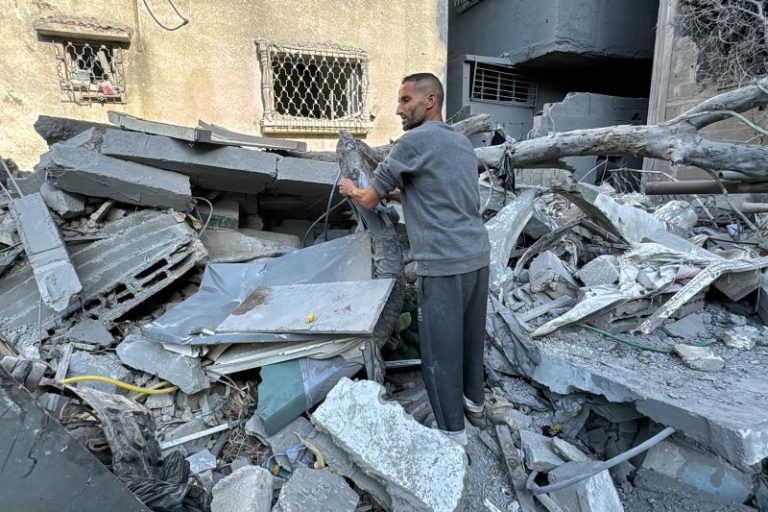Israel’s cabinet unanimously voted to sanction the nation’s oldest newspaper, Haaretz, on Sunday citing its critical coverage of the war following the October 7 Hamas attacks and comments by the outlet’s publisher calling for sanctions on senior government officials.
Haaretz, which is widely respected internationally, has provided critical coverage of Israel’s war following the Hamas attacks on October 7, including investigations into abuses allegedly committed by the Israel Defense Forces (IDF) as military operations expanded across Gaza and into neighboring Lebanon.
The proposal, put forward by communications minister Shlomo Kar’i, will end government advertising in the newspaper and cancel all subscriptions for state employees and employees of state-owned companies.
Haaretz described the move as an attempt to “silence a critical, independent newspaper.”
In a statement following the vote, Kar’i wrote: “We must not allow a reality in which the publisher of an official newspaper in the State of Israel will call for the imposition of sanctions against it and will support the enemies of the state in the midst of a war and will be financed by it, while international bodies are undermining the legitimacy of the State of Israel, its right to self-defense and are actually imposing sanctions against it and its leaders.”
Amos Schocken, the newspaper’s publisher, drew criticism for referring to Palestinian “freedom fighters” during a speech at an event organized by the outlet in London on October 27.
“It (the Netanyahu government) doesn’t care about imposing a cruel apartheid regime on the Palestinian population. It dismisses the costs of both sides for defending the settlements while fighting the Palestinian freedom fighters that Israel calls terrorists,” he reportedly said.
Following widespread criticism of the comments in Israel, Schocken clarified his comments saying that he did not believe Hamas militants were freedom fighters.
In an editorial Haaretz said that Schocken was referring to “Palestinians living under occupation and oppression in the West Bank.”
Still, it said Schocken had “erred” by referring to anyone who deliberately harms and terrorizes civilians as “freedom fighters,” arguing that the correct term was “terrorists.”
In the speech Schocken also called for international sanctions on Israeli leaders as the only way to force the government to change course.
“In a sense, what is taking place now in the occupied territories and in part of Gaza is a second Nakba,” he said. “A Palestinian state must be established and the only way to achieve this, I think, is to apply sanctions against Israel, against the leaders who oppose it and against the settlers.”
In addition to Schocken’s comments at the London event, Kar’i singled out the newspaper’s coverage of the war in his statement on Sunday.
“The decision came in the wake of many articles that damaged the legitimacy of the State of Israel in the world and its right to self-defense,” he said.
Haaretz slammed the move in a statement on Sunday, calling it “another step in Netanyahu’s journey to dismantle Israeli democracy.”
“Like his friends Putin, Erdoğan, and Orbán, Netanyahu is trying to silence a critical, independent newspaper,” the statement said. “Haaretz will not balk and will not morph into a government pamphlet that publishes messages approved by the government and its leader.”
The move comes two months after the military raided and shut down Al Jazeera’s office in Ramallah and six months after the government shut down the broadcaster’s operations inside Israel in May, prompting condemnation from the United Nations and rights groups.
On Friday, the Committee to Protect Journalists (CPJ) said preliminary investigations showed at least 137 journalists and media workers had been killed covering the war, making it the deadliest period for journalists since CPJ began gathering data in 1992.


